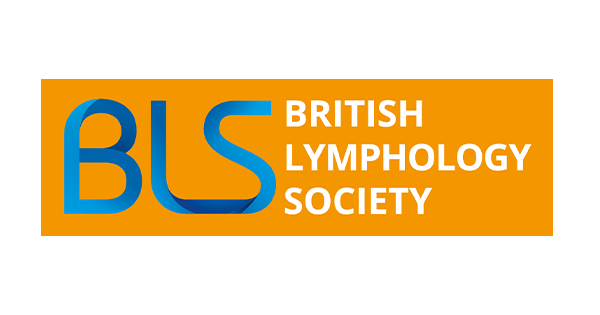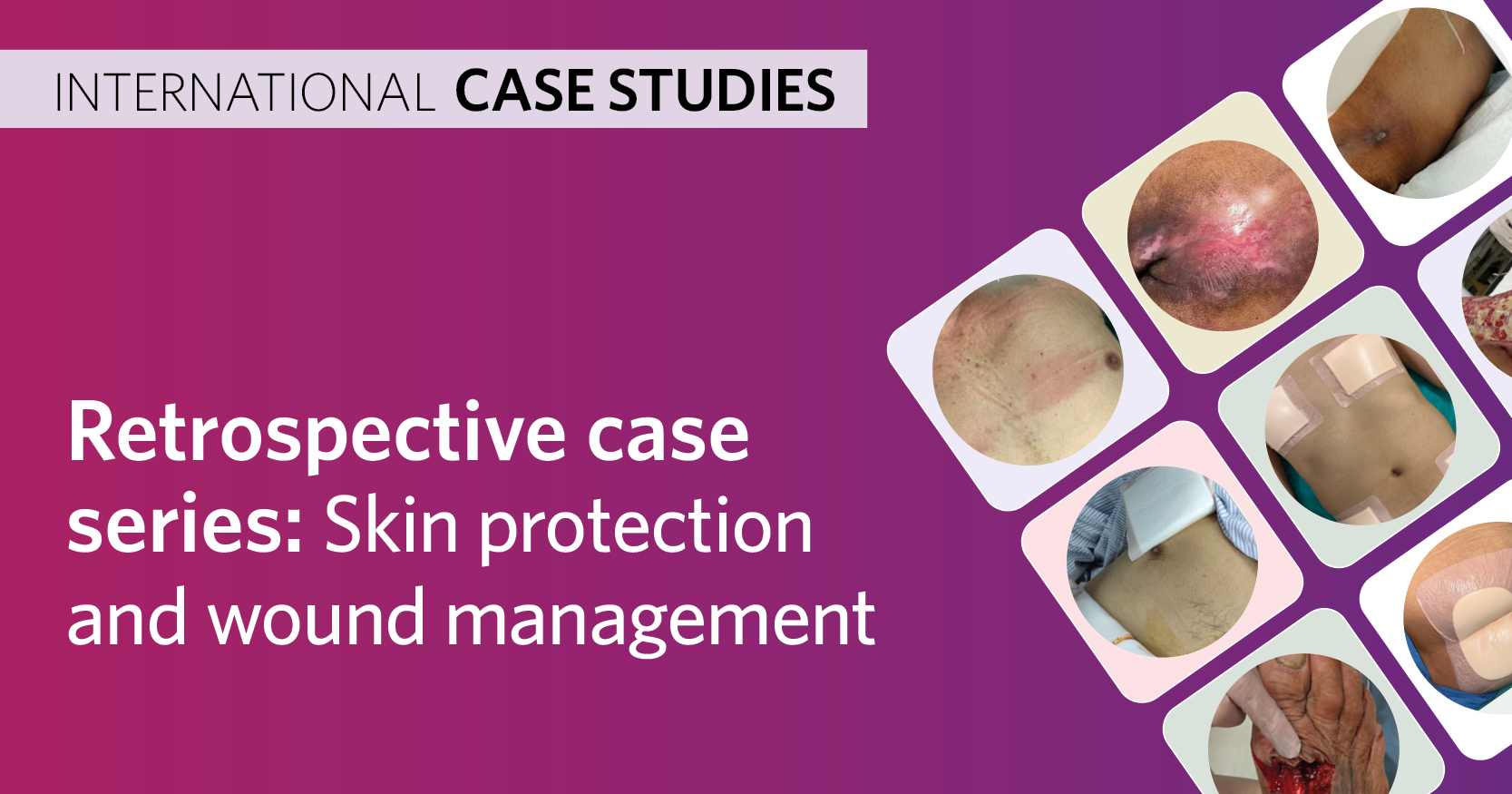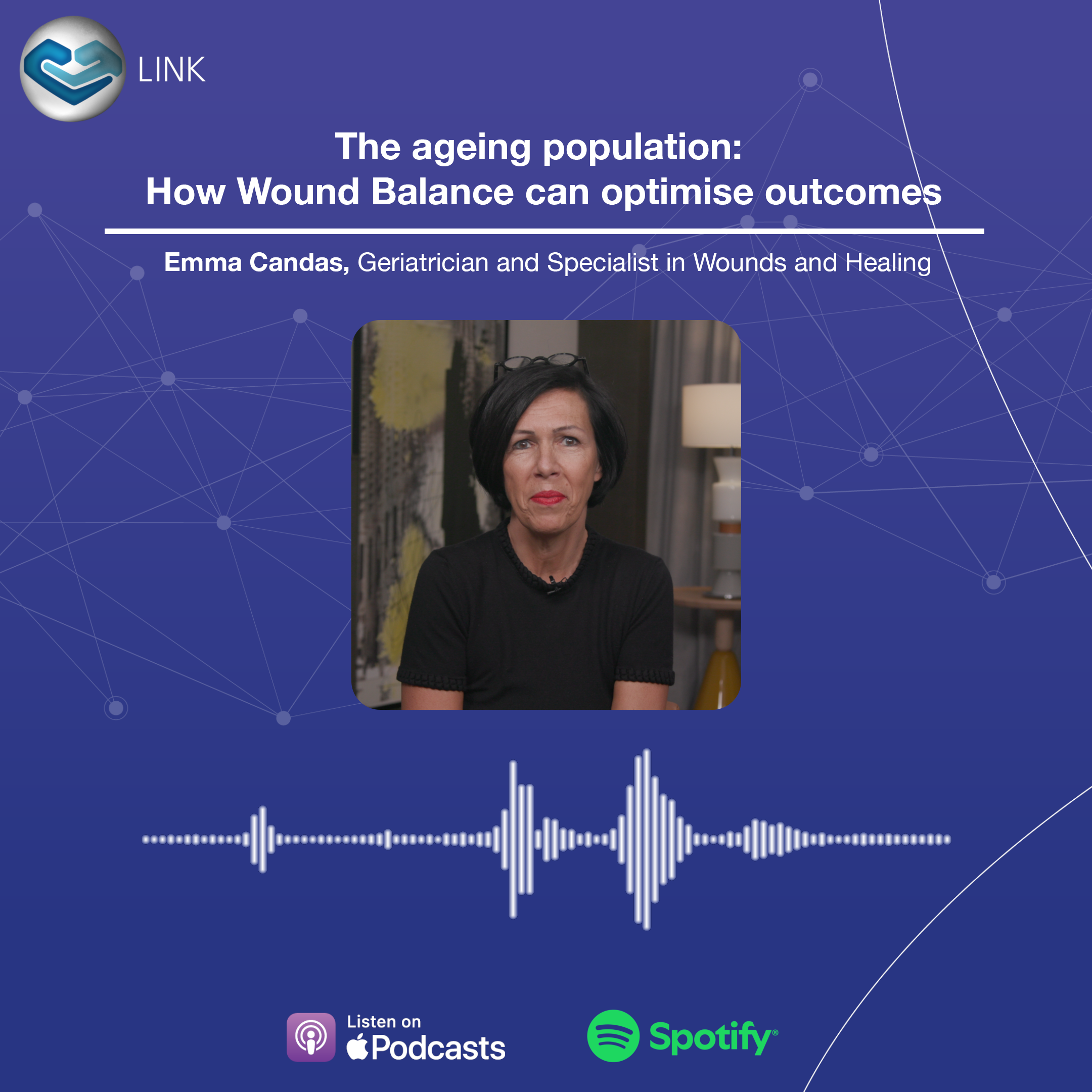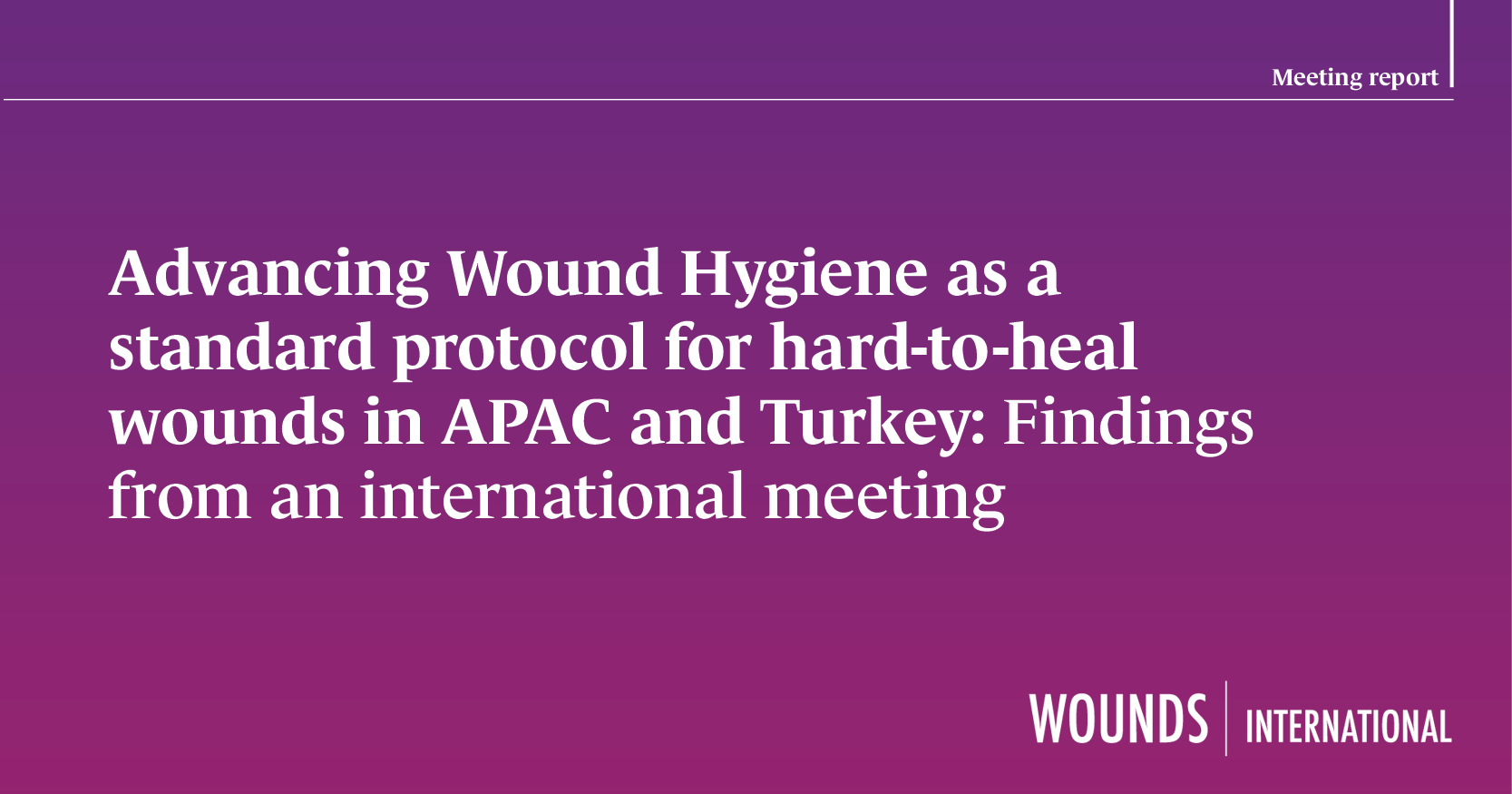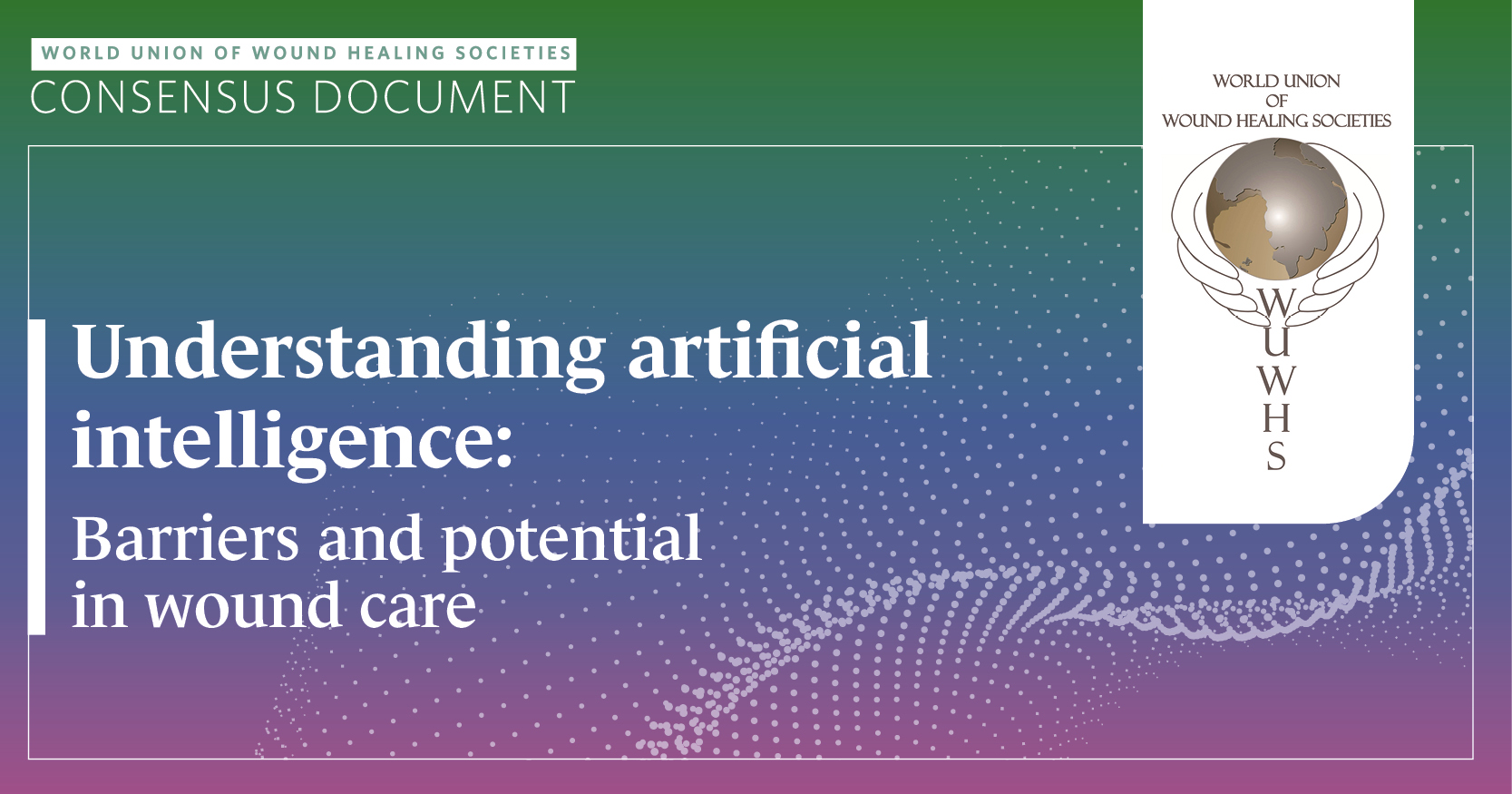This year is a significant milestone for the British Lymphology Society as we celebrate our 40th anniversary.
How it all started and grew
In the UK in 1985, the lymphoedema world was a lonely and challenging place for people with lymphoedema and also for those trying to help them. When the British Lymphoedema Interest Group (BLIG) was established, it provided a lifeline, an anchor, a source of information, and a supportive network in what, looking back, was something of a vacuum!
It was probably one of the earliest formalised bodies established to support and educate healthcare professionals who were doing the very best they could for patients they were seeing with lymphoedema in the absence of any guidelines, information or education.
BLIG, the first lymphoedema clinics and an annual conference were initiated by a small group of key individuals, at, or with links to, Sir Michael Sobell House Hospice in Oxford, supported and encouraged by the late Dr Robert Twycross, its medical director, who was driven by the suffering he saw in his patients. In addition to Robert, the key individuals, each of whom are well recognised globally for their contribution to lymphoedema, were a young dermatology registrar who was studying the lymphatic system as part of his PhD (Prof Peter Mortimer), a palliative care research nurse, who became the first lymphoedema clinical nurse specialist and then the first Lymphoedema Nurse Consultant (Dr Caroline Badger), a palliative care registrar (Dr Claude Regnard) and a dermatology consultant (Prof Terence Ryan) who had experience of lymphoedema in third world countries. Caroline and Peter each spent time in Europe learning about treatment, returning on a mission to share their knowledge and improve care.
We owe much to these pioneering individuals for their foresight, determination, and their ability to inspire those early members.
BLIG provided networking opportunities, offered support, and enabled practitioners to share experiences and learn from each other. However, the need for more structured, standardised education was recognised as essential. An Advisory Group on Education for Advanced Practice was established in 1997, which resulted in a model of treatment and related education needs. This work helped to make a case for funding for the first academically accredited course of study for those wishing to practise as lymphoedema specialists. It also provided the foundations for future education and practice.
As membership grew, and its role in education and guidance of practice developed, the need to develop BLIG and its scope became clear. It could no longer be considered simply a group of interested individuals; members were passionate about doing more to improve knowledge, practice and services. Consequently, the organisation became a registered charity in the early 2000s and the name was changed to the British Lymphology Society (BLS).
Since those early days, many enthusiastic and capable members of the organisation went on to lead, educate and inspire many of today’s specialist practitioners, service leaders, teachers and researchers nationally and internationally. Many have also taken up the baton of leadership of the organisation and key supportive roles to ensure it thrived and adapted to meet changing needs.
We owe each and every one a huge debt of gratitude for their commitment, energy and willingness to grasp the many challenges along the way. They have ensured that the BLS has remained a learning organisation that is constantly evolving, maturing and becoming more efficient and professional in its organisation, and so able to achieve more.
We have also been fortunate in having such a loyal and supportive membership, who have promoted lymphoedema and all the initiatives launched by BLS, such as Lymphoedema Awareness Week in 2009 and EveryBodyCan campaign in 2020. They have contributed their expertise and time to support the development of many new resources for clinical practice and patient support, adding to our ever-growing resource library.
The EveryBodyCan campaign promoted the value of regular physical activity, seeking to dispel the fears and myths that had been perpetuated over the years. Launched just as the Covid pandemic began, the campaign emphasised simple activities that could be undertaken even by those with very limited capacity. Guidance was produced, supported by a library of online resources.
One initiative that has remained since those early days is the annual conference, which has been a vital source of learning, sharing and networking, creating a community of lymphoedema practitioners and others who share the same aspirations for better lymphoedema care.
It has remained outward looking, with key international speakers and partnerships, e.g. with our sister organisation the Australasian Lymphology Association. It also incorporates opportunities, support and encouragement for professional and personal development of practitioners, e.g. to facilitate service, understanding and implementation of research.
Celebrating achievements
In 2025, the conference provides a special focus to celebrate the 40 years of BLIG and BLS. It is an opportunity to thank all those members and supporters attending, who have played an invaluable role in the development of a key organisation and the many achievements along the way. Although there may be some reminiscing, we won’t be dwelling on the past!
This year will also be special because we are focusing on extending our educational reach beyond the conference by offering a free study day to non-lymphoedema specialists, with practical workshops, and preparing video resources for online education in conjunction with the Cancer Alliance. There will also be some fundraising to support future educational and research activities and more resource development.
Also in the pipeline to mark our 40th anniversary are three exciting new guidance documents, which will be launched at the conference. More details will follow and anyone who is signed up to our mailing list as a supporter will receive updates.
Celebrations are also extended to the planning of our next key awareness event in March 2026, which will be Lymphoedema Awareness Month, rather than just one week. This will extend opportunities for members and our corporate partners to run or support activities, hopefully reaching a much wider audience. Joining with the Lymphatic Education and Research Network and our international colleagues in supporting World Lymphoedema Day is always an exciting part of our awareness programme.
Key workstreams and activities
Collaborations with many other groups continues to be of paramount importance, within the UK and beyond, in strengthening the voice of the lymphoedema community and our ability to influence change. The patient voice is crucial. Strong links with the Lymphoedema Support Network, L-W-O Community and Lymphoedema United have been built over the years through attendance at the conference and more recently in the co-production of resources. Being a coalition member of the Legs Matter campaign has facilitated mutual learning and collaboration with colleagues who are experts in tissue viability, vascular problems and podiatry. The current focus is on recognising and preventing harm by ensuring prompt and appropriate treatment and advice.
Providing expert knowledge and opinion to other organisations has become a key part of the BLS. However, developing and producing guidance and resources to support good clinical practice has always been a key, and highly valued, part of our work. In addition to supporting knowledge acquisition of lymphoedema practitioners, we are passionate about extending knowledge and skills amongst non-specialist healthcare professionals who are often well placed to recognise early lymphoedema and initiate treatment or referral. We are proud that most BLS educational resources are freely available. All that is required to receive an alert enabling access to new resources as they become available is to sign up to our mailing list as a friend of BLS.
Although there remain many under-researched aspects of lymphoedema and its treatment, research activity and opportunities for collaborating and sharing expertise globally has flourished, particularly over the past 20–25 years. Consequently, the guidance we are able to provide to clinicians is increasingly evidence based or supported by wider expert opinion.
Over the past 12 months, we have launched several publications and resources, including an education resource on Managing lymphoedema in the presence of heart failure: making safe treatment decisions, BLS Manual Lymphatic Drainage Position Document and summary and Practical issues in applying compression garments and wraps, the Lower Limb Inflammatory Pathway and a downloadable Patient Feedback Questionnaire as a tool for practitioner use in clinics, in addition to updating the Limbstat Measurement Tool. We have added key webinars to our YouTube Channel, supported research in the awarding of a project grant and our Scientific Committee runs an annual clinical case study competition with support for clinicians new to writing for publication and delivering presentations.
The BLS in 2025
Today, the BLS is a registered charitable organisation that seeks to benefit those living with lymphoedema through education, raising awareness, supporting and driving improvements in clinical practice and research. It remains driven by the same undaunting passion held by those early pioneers for prompt diagnosis and equitable access to high quality treatment for everyone with lymphoedema. As an organisation supported by strong leadership and enthusiastic members, it has developed, matured and increased its reach and impact.
Despite there being many ongoing challenges for those with or treating lymphoedema, the past 40 years has delivered many improvements and much to celebrate within the UK. There are now well-established education programmes and a growing body of evidence to inform education and practice.
A key success, to which BLS has certainly contributed, is the shift in understanding, in significant areas of practice in the UK, that lymphoedema is not rare, many individuals are at risk of developing it, and it is not limited to those with particular cancers, and that there is a need and a role for many health disciplines in many areas of practice to understand, be able to recognise lymphoedema and to instigate appropriate treatment or referral.
Lymphoedema is becoming more “mainstream”, in that it is increasingly recognised as a condition regularly encountered by healthcare professionals in primary care settings, including GPs, community and practice nurses, physiotherapists, podiatrists and others. There is also a growing awareness of the need for education and support to enable these non-lymphoedema practitioners play an active role in the management of lymphoedema and this is one of the ongoing priorities for BLS and its members.
An encouraging development within the UK is the growing number of clinics combining lymphoedema treatment alongside treatment for venous disorders and wounds. Such provision is by no means widespread; unfortunately, people in many areas have no access to lymphoedema practitioners. The BLS seeks to address the inequity of access to services and help practitioners to build a case for local service development by providing data and tools to determine the level of service required for their population in the BLS National Tariff Guide.
Happy 20th birthday to the Journal of Lymphoedema
The BLS is delighted to have shared its journey over the past 20 years with the Journal of Lymphoedema. We appreciate the opportunity to be involved with the journal and congratulate the team on reaching this 20-year milestone!
Its introduction was timely and innovative. Being very clinically focused, the new journal enabled sharing of practice, ideas and challenges, many of which didn’t seem so different across the world.
There was a growing lymphoedema community, but many clinicians were limited in experience or confidence in academic writing and were only able to undertake small research projects. The journal provided much needed opportunities, support and a platform for sharing the findings of small clinical projects, audits and service development.
Looking back on the past two decades since the birth of the Journal of Lymphoedema, there have been several really positive developments. Surgery has moved on apace, with targeted procedures making a huge difference to the lives of some patients, but continues to be available to only a minority of those who may benefit.
However, the biggest success, with the widest impact on practice and patient experience has been the innovations and accessibility in compression therapy. New bandaging systems have reduced the burden of intensive treatment. Intermittent pneumatic compression therapy has also advanced greatly.
The standout success must be in relation to compression garments. In the early 2000s in the UK, compression garments were beginning to be made available on prescription. Compression companies were keen to listen to feedback from both patients and practitioners. Since then, there has been a phenomenal expansion in product range, options and quality. Better materials have improved the effectiveness of treatment and comfort for patents. Innovations such as night garments, toe caps and Velcro wraps have expanded the practitioner toolbox, enabling tailoring of treatment to meet the individual needs of more patients with more complex problems. The availability of garments in a wide range of colours and patterns has been a significant development for people with lymphoedema psychologically and socially. In addition, there are more aids available to make application of garments easier.
All of these amazing innovations have the potential to contribute to better treatment outcomes, enhancement of the patient experience greater choice and increased independence. However, a thorough assessment of needs and selection of the most appropriate strategies by a knowledgeable practitioner remains critical to the effectiveness of treatment.
Conclusion
There continue to be many challenges within the lymphoedema community in the UK and globally. The vision of a world in which people with lymphoedema have their condition diagnosed early and have access to prompt and appropriate intervention and support from knowledgeable health care professionals, regardless of the cause and geography seems a long way off. Achieving key milestones such as the BLIG/BLS 40th anniversary and the 20th anniversary of the Journal of Lymphoedema are opportunities to recognise just how far we have come. We all continue to strive for a better lymphoedema world, but let’s celebrate just how far we have come and what we have contributed.

